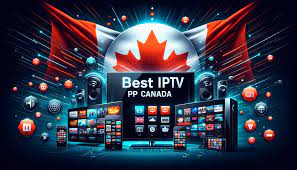In the era of digital technology, the way we consume television has evolved significantly. One of the most transformative advancements in this space is IPTV (Internet Protocol Television). best iptv has revolutionized the way we watch our favorite shows, movies, and live broadcasts, providing viewers with unprecedented flexibility and a vast array of content.
What is IPTV?
IPTV stands for Internet Protocol Television, a system that delivers television content over the Internet instead of traditional terrestrial, satellite, or cable formats. By utilizing Internet protocol (IP), IPTV enables users to stream media directly to their devices, including smart TVs, smartphones, tablets, and computers. This technology has gained immense popularity due to its flexibility, interactivity, and vast content options.
How Does IPTV Work?
IPTV operates by converting video content into data packets that are sent over the Internet. Here’s a simplified overview of the process:
- Content Acquisition: IPTV providers obtain content from various sources, including television networks, production companies, and independent creators.
- Encoding and Streaming: The acquired content is encoded into a digital format and stored on servers. When a user selects a program, the IPTV service sends the requested data packets to the user’s device via the Internet.
- Decoding and Playback: The user’s device decodes the data packets and displays the content on the screen. This process allows for real-time streaming, enabling viewers to watch shows without significant delay.
Types of IPTV Services
IPTV services can be categorized into three main types:
- Live Television: This service allows viewers to watch television programs in real time. Users can access live broadcasts from various channels, much like traditional cable or satellite TV.
- Video on Demand (VOD): VOD services enable viewers to select and watch content from a vast library at their convenience. This includes movies, TV shows, documentaries, and more, allowing for a personalized viewing experience.
- Time-Shifted TV: This feature allows users to watch previously aired content at their convenience. It includes services like catch-up TV, where viewers can access shows that aired earlier, and start-over TV, which lets users begin watching a live broadcast from the beginning.
Advantages of IPTV
The rise of IPTV has been fueled by several advantages that set it apart from traditional television services:
- Variety of Content: IPTV offers a wide range of channels and on-demand content, catering to diverse interests and preferences. Users can access everything from international channels to niche content.
- Flexible Viewing: With IPTV, viewers can watch content on various devices, enabling them to enjoy their favorite shows anytime, anywhere, as long as they have an Internet connection.
- Interactivity: IPTV services often include features like pause, rewind, and fast-forward, enhancing the viewing experience. Many providers also offer interactive applications that allow viewers to engage with content in new ways.
- Cost-Effectiveness: Many IPTV services provide competitive pricing compared to traditional cable subscriptions. Users can often customize their packages, paying only for the channels and content they want.
Challenges and Considerations
Despite its numerous benefits, IPTV is not without challenges:
- Internet Dependence: A reliable and fast Internet connection is crucial for optimal IPTV performance. Users with slow connections may experience buffering and lower quality streaming.
- Content Licensing: IPTV providers must navigate complex licensing agreements to legally stream content. Unauthorized IPTV services may offer pirated content, leading to legal issues for users.
- Quality Control: The quality of IPTV services can vary significantly between providers. Users must research and select reputable providers to ensure a satisfactory experience.
The Future of IPTV
As technology continues to advance, the future of IPTV looks promising. Innovations such as 5G technology are set to enhance streaming quality and reduce latency, making IPTV even more appealing. Additionally, the rise of smart home devices and Internet of Things (IoT) integration will likely further enhance the user experience, allowing for seamless control over multiple devices and content sources.
Conclusion
IPTV represents a significant shift in how we consume television. By harnessing the power of the Internet, IPTV provides viewers with flexibility, interactivity, and a wealth of content options. As technology evolves and user preferences change, IPTV is poised to continue its growth, shaping the future of television viewing for generations to come. Whether you’re a casual viewer or a dedicated binge-watcher, IPTV offers a dynamic and engaging way to enjoy entertainment in the digital age.

